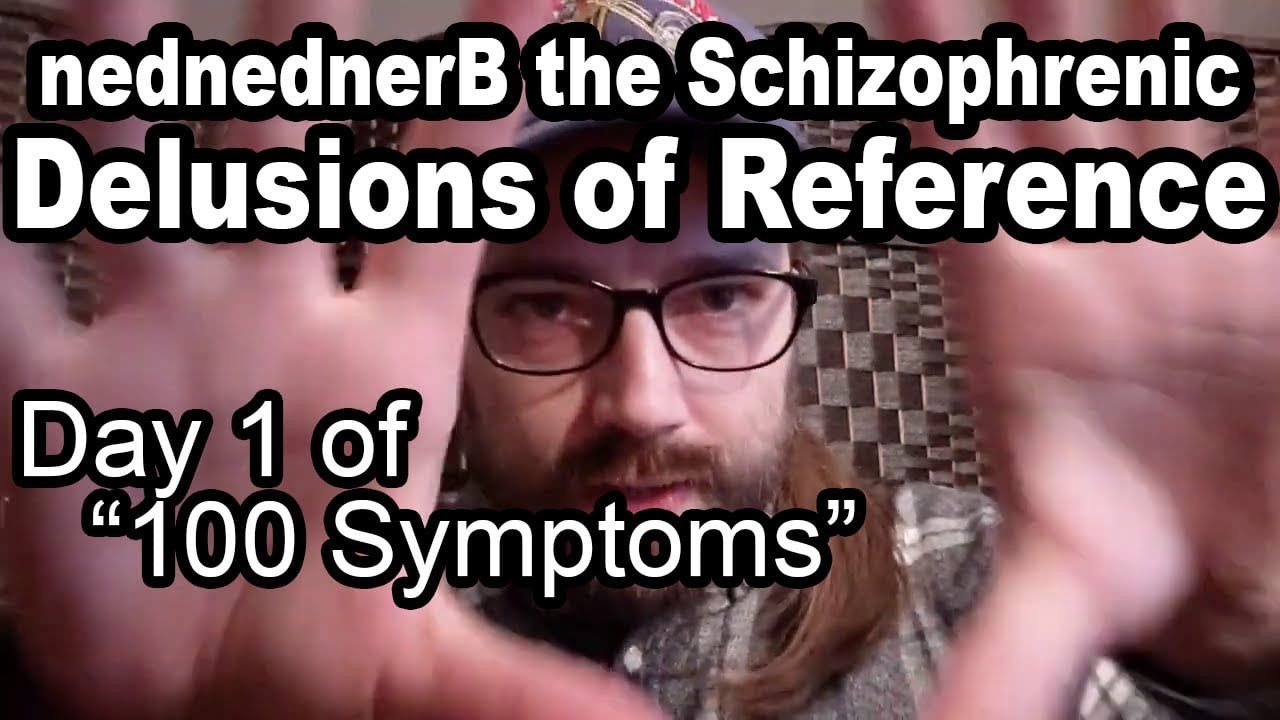Unlocking the Mind: 7 Powerful Insights into Delusions of Self-Reference – Day 1 of the 100 Symptoms Journey
Self-reference is a situation of strongly feeling or thinking that things are about you, or that things not connected to you are caused …
source
Delusions of Self-Reference: Day 1 of "100 Symptoms"
For many, the concept of "self-reference" might conjure images of playful introspection, but in psychological terms, it can take a darker turn—especially in the context of delusions. Delusions of self-reference involve the belief that external events, people, or situations are directly related to oneself. This unsettling symptom often emerges in various mental health disorders and can significantly influence an individual’s perception of reality.
Understanding Delusions of Self-Reference
Delusions are fixed beliefs that persist despite evidence to the contrary. Those experiencing delusions of self-reference often feel that they are at the center of attention, with the world revolving around their thoughts or actions. This sensation can manifest in numerous ways:
Paranoia: An individual may believe that others are talking about them, watching them, or plotting against them, interpreting neutral gestures or comments as personal attacks.
Omnipotence: Some might think that their thoughts can influence the actions of others, leading to a belief that their mental state somehow controls reality.
- Celebrity Complex: Here, one might feel as though they are the subject of scrutiny, similar to a public figure. Every interaction becomes charged with significance, creating a reality where they are perpetually in the spotlight.
Causes and Influencing Factors
These delusions often arise from various mental health disorders, such as:
Schizophrenia: One of the most documented conditions associated with delusions of self-reference, where individuals may experience hallucinations or disorganized thoughts, exacerbating feelings of self-importance.
Bipolar Disorder: During manic episodes, heightened self-esteem can lead to delusions where the individual believes they are on a higher plane of existence, leading to potential self-referential thoughts.
- Severe Depression: In depressive states, individuals may feel they are to blame for global conditions, interpreting unrelated events as having a direct connection to their perceived failures.
Cultural and Social Influences
Interestingly, cultural background can shape the form these delusions take. In some cultures, being at the center of a narrative is more acceptable, leading to various manifestations of self-reference. The modern digital age, with its penchant for social media, can amplify these feelings, making individuals feel as though their actions are constantly under examination or commentary.
Recognizing the Symptoms
Identifying delusions of self-reference in oneself or others can be challenging. Symptoms may range from subtle to overt, including:
A belief that everyday occurrences—like a news segment or a stranger’s conversation—are directly related to one’s own life.
An intense focus on one’s image or reputation, manifesting in anxiety related to how one is perceived by others.
- A need to interpret ambiguous situations as personal affirmations or criticisms.
Treatment and Management
Addressing delusions of self-reference requires a multifaceted approach:
Psychotherapy: Cognitive-behavioral therapy (CBT) is often effective, helping individuals confront distorted thoughts and develop a more realistic perception of their relationship with the world.
Medication: Antipsychotics or mood stabilizers may be prescribed to help manage underlying conditions, particularly in cases of schizophrenia or bipolar disorder.
- Support Systems: Family and community support play vital roles in the recovery process, providing understanding and validation.
Conclusion
Delusions of self-reference can cloud an individual’s understanding of their relationship with the world, leading to isolation and distress. The first day of this journey through "100 Symptoms" emphasizes the importance of awareness and understanding of these delusions. As we move forward, exploring each symptom holds the potential to foster greater empathy, supporting those navigating the complexities of their mental health.
In recognizing these symptoms, we can better facilitate conversations that demystify mental illness, paving the way for those affected to seek help and find solace in connection.















Post Comment